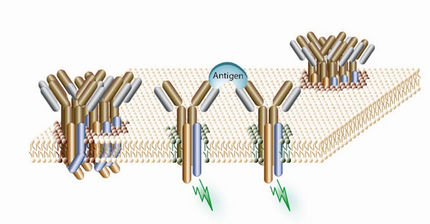RIKEN and Perlegen Begin Collaboration to Conduct High-Resolution, Whole Genome Studies of up to 47 Common Diseases
Personalized Medicine Project Will Complete Billions of Genotypes, Bringing Together BioBank DNA Samples, Leading SNP Genotyping Technology from Affymetrix and Perlegen, and International Expertise in Analysis of Genetic Variation
Advertisement
RIKEN (The Institute of Physical and Chemical Research) and Perlegen Sciences Japan K.K. announced today that they have formed a large-scale, high-throughput research collaboration using Affymetrix technology to conduct high-resolution, whole genome association studies in Japan aimed at identifying the genetic causes of up to forty-seven common diseases. The visionary project places Japan in a leadership position in striving to understand diseases that impact many millions of people worldwide.
RIKEN's SNP Research Center has already established itself as a world leader in SNP genotyping. Having developed over 300,000 SNP assays, the center has contributed over 25 percent of the genotypes that were completed by the six-country, international hap-map consortium. In addition to large scale sample tracking systems and expertise in genetics, the scientists and physicians at the SNP Research Center possess a thorough understanding of the clinical presentation of many diseases. Also, because the SNP Research Center is highly respected and has many clinical ties, it is in a strong position to quickly use the discoveries to help people in Japan and around the world.
RIKEN recognized that the collaboration between the SNP Research Center and Perlegen would represent a special opportunity. The combined capabilities of both groups would be unique in the entire world. The researchers at the SNP Research Center have been recognized as the best for deciding which genetic questions to ask and for planning the best experiments. Perlegen has demonstrated that it could assist RIKEN by using next-generation Affymetrix technology to conduct first-pass genome scanning of patients to identify regions of the genome associated with many diseases. Scientists at the SNP Research Center will conduct fine-mapping in candidate regions as well as genotyping the associated SNPs in additional sample sets to confirm the results. In addition, researchers at the SNP Research Center will be able to conduct follow-up research to understand the functional biology of each genomic region.
The collaborators at the SNP Research Center and Perlegen's Japanese subsidiary, Perlegen Japan, will analyze over 250,000 unique genetic variations (SNPs) in DNA samples collected from patients across Japan with funding from RIKEN. Diseases to be studied will include atherosclerosis, rheumatoid arthritis, epilepsy, heart failure, chronic obstructive pulmonary disease, asthma, arrhythmia, cerebral infarction, and many types of cancer.
"Through this collaboration, Japan will significantly advance the understanding of many common diseases in a short period of time," said Yusuke Nakamura, MD, PhD, Director of the SNP Research Center at RIKEN and Director of the Human Genome Center, Institute of Medical Science at the University of Tokyo. "This effort marks an important step towards making 'personalized medicine' a reality, ensuring improved patient care in Japan and around the world."
"It is a distinct honor for our wholly-owned subsidiary, Perlegen Japan, to be invited by RIKEN to participate in this unprecedented effort bringing together a powerful combination of unparalleled technology, an enormous network of dedicated physicians, and world-class genetic expertise," said Brad Margus, Chief Executive Officer of Perlegen. "In funding this visionary project, MEXT (Ministry of Education, Culture, Sports, Science and Technology) has taken a leading role in accelerating the pace of international research aimed at improving the lives of millions of people with serious diseases."
The results of each disease study may help to identify more precisely people who are at high risk of developing the disease, which may lead to better prevention, earlier detection and improved treatments. Scientists involved in the collaboration expect to discover new biological pathways involved in the causes of each disease, making it possible to develop drugs that target the root causes of disease rather than just the symptoms.
The DNA samples to be analyzed were collected from 66 hospitals across Japan as part of the BioBank Japan initiative, coordinated by the Institute of Medical Science at the University of Tokyo. With a system for collecting DNA samples and detailed medical records of patients participating in the program, the BioBank in the University of Tokyo has already collected DNA and clinical data for approximately 150,000 Japanese cases.
"The scientific leadership of Perlegen and the SNP Research Center have known each other for many years and are very comfortable working together," stated David R. Cox, MD, PhD, Chief Scientific Officer of Perlegen Sciences. "By combining the abilities of these two places, many important genetic questions can be answered together."
"We intend to begin work immediately," said Dr. Nakamura of RIKEN. "Using data and DNA samples already collected as part of the BioBank Japan initiative, our initial studies will focus on cancer and heart disease."



















































